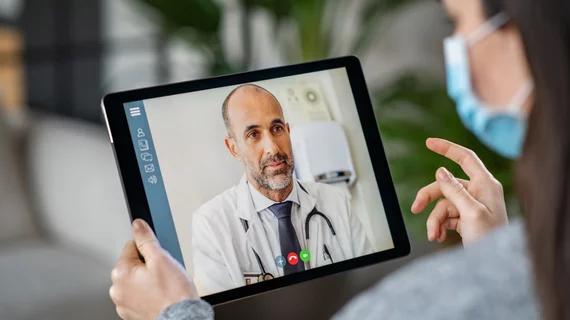AMA launches new telehealth initiative
The new effort, Return on Health, will provide a framework to ensure the value of digitally enabled care models is understood and established. The initiative comes at a time when telehealth has taken off since the start of the COVID-19 pandemic. The U.S. healthcare system has become more accepting of virtual visits since the pandemic, after in-person care posed more risks for exposure to the virus. However, not all the benefits of virtual care are fully understood, according to the AMA.
The Return on Health framework, which was developed by the AMA and Manatt Health with input from healthcare experts, accounts for the various ways virtual care programs increase the “return on health” with positive impacts for patients, clinicians, payers and society. Specifically, the program aims to “move beyond dollars in cents” when assessing the value of virtual care.
“Understanding the value of virtual care is vital to inform decision making that facilitates the shift to digitally enabled care models that blend the best features of in-person care with those of virtual care,” AMA Board Member Jack Resneck Jr., MD, said in a statement. “The AMA’s framework fills a critical need to inclusively define and measure the various benefits generated by virtual care as decision makers design new care models, prioritize investments and determine appropriate coverage and payment policies in the future."
The framework includes the benefits of virtual care along six value streams: clinical outcome; quality and safety; access to care; patient and family experience; clinician experience; financial and operational impact; and health equity. In addition, the framework incorporates the six value streams of the environmental variables: practice type, payment arrangements, patient population, clinical use case, and virtual care modality.
The AMA is using real-world case studies with the early adopters of the digitally enabled hybrid model to demonstrate the use of the framework and how more healthcare stakeholders can realize the full potential of virtual care.

